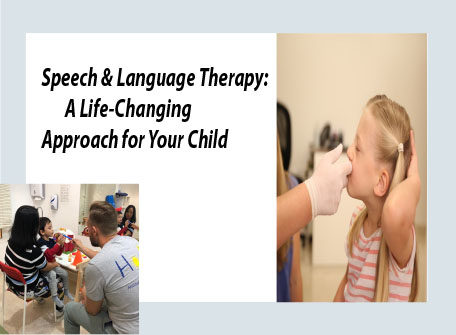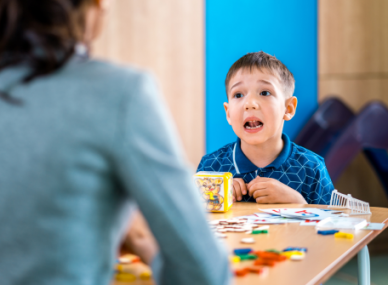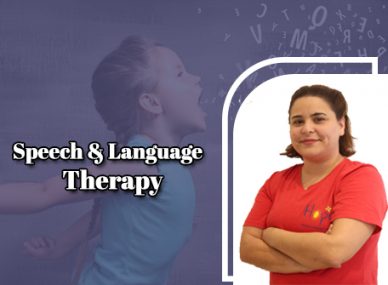Children with neurological and developmental disorders can be benefited from various therapies offered in the well-known paediatric rehabilitation centre in Dubai, Hope AMC. Speech and language therapy is an effective way of improving verbal and non-verbal communication skills in children. Children having pronunciation disorders, developmental receptive and expressive language delays, stuttering problems, feeding disorders, etc., gain benefits from this therapy.
Speech and Language Therapy – Helping Children Gain Communication Abilities
Many children suffer from speech disorders and such a condition may arise due to any underlying medical issue or various other non-medical reasons. However, due to certain medical conditions, a child is considered to be at high risk of having speech disorders or delays. These medical conditions are – Traumatic Brain Injuries, Spinal Cord Injuries, Hearing Loss, Developmental Delays, Cerebral Palsy, Autism Spectrum Disorder, Down Syndrome, Genetic Disorders, Auditory Processing Disorders, Pervasive Developmental Disorders, and various other conditions.
The Tools and Techniques Used in Speech and Language Therapy
- PROMPT – an innovative speech-generating technique used by the SLPs
Speech problems can be overcome by the application of various innovative therapeutic techniques like PROMPT and AAC. Prompts for Restructuring Oral Muscular Phonetic Targets is a tactile-kinaesthetic approach in which the paediatric speech pathologist places his/her hands on the child’s face to provide touch cues to guide the jaw, lips, and tongue move in the correct way to utter words properly.
- AAC – an essential part of the Speech and Language Therapy
Another unique approach that is used by the speech-language pathologists (SLPs) is AAC. The Augmentative and Alternative Communication approach uses various speech-generating devices (SGDs) that help the children to understand words and pronounce them correctly. AAC incorporates two types of techniques – the aided systems and unaided systems. The aided systems use some kinds of tools that can be as basic as a pen and paper as well as high-tech in nature like iPads. Whereas, the unaided systems include more conventional techniques like body language gestures, facial expressions, sign vocabulary, etc.
The AAC approaches are individualised to meet the unique and specific communication needs of the children. After assessing the communication problems faced by the children, the paediatric speech therapists prepare a personalised program. The Speech and Language Therapy programs primarily address the needs of the individual child and help him/her overcome the speech and language barriers.
Also, through the act of listening to the words spoken by the therapists and other people around them, the children learn to understand many new words and utter them flawlessly.
At Hope AMC, the specialists always try to help children overcome their physical and psychological weaknesses and inabilities. This is done by implementing different therapeutic approaches that slowly build up their confidence in performing various activities independently and take them towards a hopeful future.




